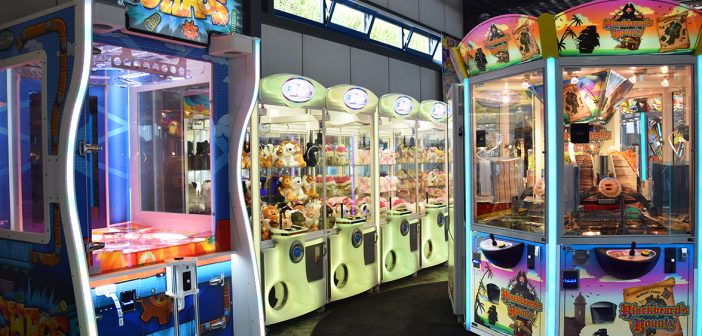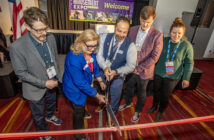The Elaut Group of Companies
Building a Conglomerate & Quality Products for the Amusement World
Many may not know, but the omnipresent crane game that has become a mainstay in routes and game rooms nationwide may not be so common if not for a certain Belgian company and its illustrious founder, Achiel Verstraeten.
Verstraeten founded Elaut in 1959, and after seven years repairing bumper cars, the company pivoted toward an idea he had been fiddling with throughout that time. His fascination with “diggers” led him to years of testing and remodeling, until he began developing prototype models of what was to eventually become the electronic crane. By 1966, the lucrative machines were beginning to play an important role in Elaut, and gradually the company’s full focus shifted that way. During that time, the name Elaut (shortened from Electro Automaten Verstraeten) came along, and the rest is history.
Those early years embodied the business philosophy that still permeates the Elaut culture today. Achiel was known for excellent relationships with his customers, tapping them as his first line of feedback to fuel new game ideas. By the 1980s, Elaut was positioned to make an international move, and was eyeing the U.S. as the game sector there began booming. Since that time, the company has cultivated an image of reliability and creativity within its customers, while crafting and maintaining longtime business relationships with the biggest movers and shakers in the industry.
Today, Achiel’s family maintains his legacy. CEO Eric Verstraeten, along with his sisters Helga and Emmy, are busy building the business on both sides of the pond, and by the millennium he had transformed Elaut USA into one of the nation’s largest theme park concessionaires and game operators. The U.S. side of the business has grown in leaps and bounds in the past few years, starting with the acquisition of Coast to Coast and Benchmark in 2015 and 2016 respectively. Much of this recent growth can be attributed to Verstraeten putting his trust in the business acumen of the Elaut USA team and its leader, Glen Kramer, CEO of Elaut USA, CEO at Benchmark Games and Interim CEO at Coast to Coast.
Kramer joined the Elaut team in May 2012, coming in to run the ship and ensure the quality for which Elaut had become known wasn’t compromised. At the time, he said, Elaut had shifted focus away from the U.S. because it didn’t represent a big enough part of their market. Kramer decided to change their minds, looking at the IAAPA show that year as a way to boost sales. A warehouse wrecked by Superstorm Sandy less than a month before the show threatened his ambitious plan, though hardly derailed it.
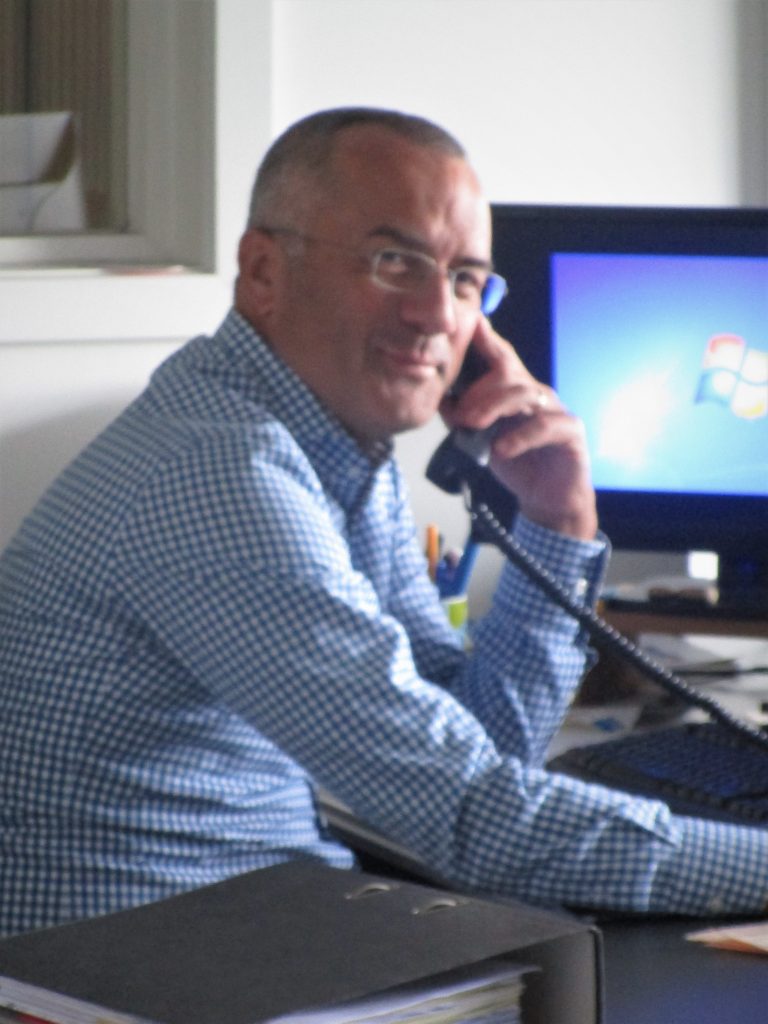
Eric Verstraeten
“I asked our salespeople, ‘What’s the plan for IAAPA?’ They all said there wasn’t one. No one thought we could sell much there, but by the end of the Expo we’d sold three quarters of a million in product,” Kramer said. “The U.S. market probably makes up more than half the company’s business now.”
That drastic shift is what preluded Elaut’s interest in both Benchmark and Coast to Coast. As Kramer boosted sales, it quickly became apparent that a larger, better suited team and distribution network was necessary. Kramer’s bottom-up philosophy, the idea that his employees were his strongest asset, fit perfectly with Elaut’s ideas, and soon talks were underway to continue the company’s U.S. growth.
“It’s kind of like real estate, this business. Instead of location, location, location, you need the right people,” Kramer said. “I assembled a team of industry savvy folks and began to propel things forward. There was no real distribution in the U.S. marketplace, and I worked to build and rebuild those relationships.”
Kramer recalls driving to Des Moines to meet with Terry Moss of Moss Distributing, knowing that no one from the company had been out there to introduce Elaut. The company continued operating across the States as well, giving them unprecedented experience and knowledge on the inner workings of the industry. Today, Kramer estimates that between the three U.S. companies (Elaut USA, Benchmark and C2C) and their theme park operations, about 400 people work for Elaut in the U.S. Kramer hinted at plans for future growth in Florida, saying the company’s Belgium factory is at capacity and the only way to grow is stateside.
That doesn’t mean Kramer has a U.S.-only focus though. The company has expanded its global footprint as well, with sales in Australia, Dubai, Russia, South America and across Europe. Elaut just partnered with a company in China to help defend its IP there as well, with Kramer taking pride that “nearly everyone wants to copy our cranes.”
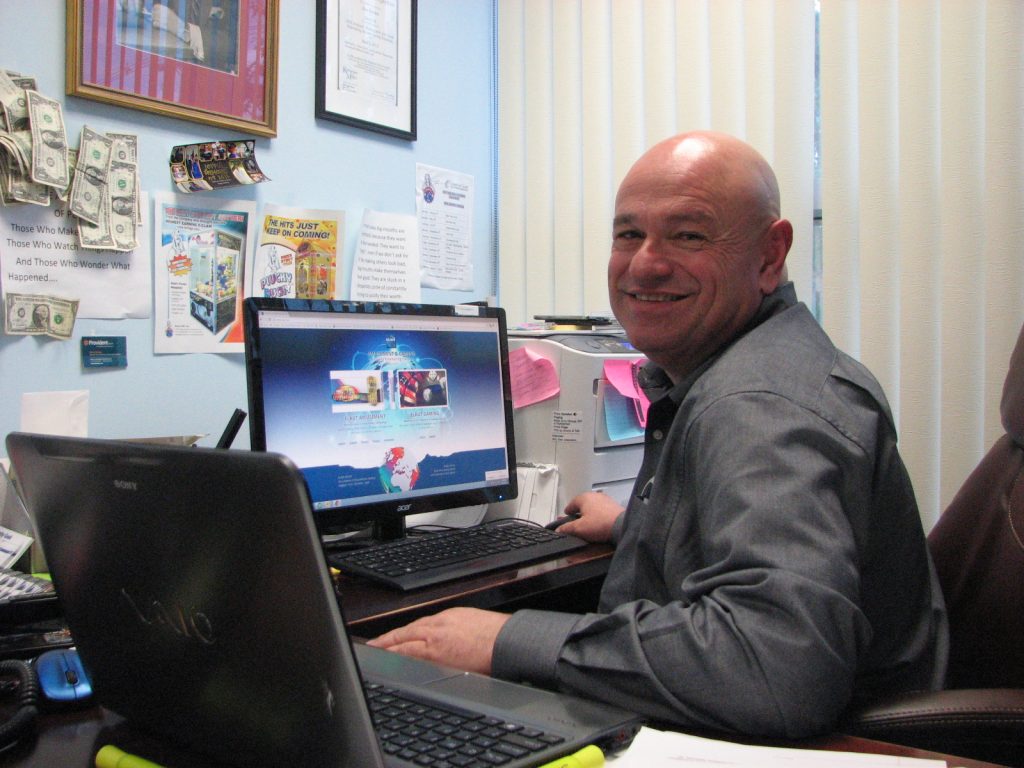
Glen Kramer
He said, “Most people imitate, we innovate. We spend countless hours, time and money only to have our ideas torn apart in the Asian market.”
As an exception, Kramer did say they sell the company’s X-Treme Big One in China and other Asian markets, because its sheer complexity and size make it nigh impossible for counterfeiters to rip off.
After acquiring Benchmark and Coast to Coast, Kramer set out refining the Elaut USA model and the quickly growing team that would pull it off. First, combine the many great minds that now all fell under the Elaut name, then search for synergies within the products that Benchmark, C2C and Elaut USA offered.
“It’s been a beat the clock situation since we bought Benchmark,” Kramer said. “It’s been a seven day week for everyone.”
Defining the purpose of each facet of the company helped Kramer best utilize the benefits a parent company like Elaut can provide.
“The Elaut name is our Lamborghini, Coast to Coast is our Kia, and Benchmark is our Chevrolet,” Kramer described. “Every one of those has a specific customer base, and are best suited to serve that part of the market.”
Kramer is quick to pass praise to his coworkers and employees, however. He credits his depth of knowledge of the industry (he started at age 19 and has been at it since) only so far, and believes wholeheartedly that he couldn’t have done any of it without the support of the Verstraeten family and the integral players within Benchmark and Coast to Coast.
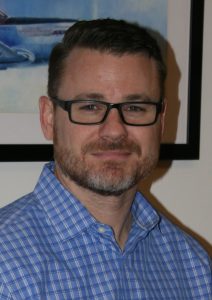
Trevor Gianaris, CRO/COO of Benchmark Games
For Trevor Gianaris, COO and CFO at Benchmark, Kramer’s changes brought a renewed vigor and dedication to the Benchmark team. Before Kramer, Gianaris said, there was hardly ever a design meeting or concept discussion on new games, and he’d see Benchmark’s new game when it came out to the public.
“Now, there’s 30 games waiting to be approved for prototype. A lot more thought is going into concepts then before,” Gianaris said. “I can’t speak highly enough of the philosophy that Elaut brought. When you get along and have a similar vision, yet you’re able to disagree and still appreciate each other, that’s when things happen. That’s where the real synergy is. We all understand where we want to be as a group of companies and also Benchmark as an individual company.”
Gianaris said the biggest benefits Elaut brought with them were a renewed sense of creativity, permission to experiment and solid, first-hand guidance garnered from years of operating. The Benchmark offices now have a “war room” filled with pictures of game ideas, and Gianaris says everyone within the company is encouraged to contribute if they have an idea. A solid reinvestment in Benchmark also enabled the company to reinvent its manufacturing process and modernize its equipment.
“Nearly every department has gotten a noticeable upgrade when it comes to equipment,” Gianaris said.
This will allow Benchmark to venture into even more prototypes each year, and Gianaris says the volume, quality and uniqueness of Benchmark games will only keep trending up. (By the way, the factory will be showing at Fireball, Total Eclipse and Double Drop at IAAPA.)
“A lot of the change was just in breathing new life into Benchmark,” Gianaris concluded. “This new life has given us enough momentum for another 30 years! There was excitement missing in our product development, something that should never be the case in an industry dedicated to just that, excitement. They’re helping enable a more creative process and a product pipeline that is now possible.”
For Coast to Coast, the story shared similarities but was hardly identical. Steve Paris, Executive VP of Coast to Coast, says Elaut wasn’t looking to “right the ship” when acquiring C2C, but instead looking to build off of the reputation of excellence already present within the company.
“Coast to Coast was moving and shucking and jiving even before the acquisition, things were going well, but it just needed more capital,” Paris said. “The ownership has been incredibly bright. They grew the company from nothing to something then rolled it into something even bigger.”
The benefits of putting the companies together are multiple according to Paris, providing both C2C and Elaut with good vertical integration, more flexibility and more capital. C2C provides consumable products from plush to prizes, Elaut is known for their cranes. The two fit well.
“Things have been great since the acquisition,” said Paris. “We have exponentially more wherewithal to keep product in stock, as opposed to in days of old when it was much harder to maintain inventory.”
Paris says Elaut’s long roots in the U.S. simplified the Coast to Coast acquisition. The Verstraeten family was already known to many in the amusement industry, and the companies had a history, making for a smooth transition.
“They used to say our industry is only the size of a quarter,” Paris said. “Knowing the family, knowing the Elaut name, I think that made it easier for everyone. It’s not like it was some faceless European conglomerate came over and said do it our way.”
Going forward, Coast to Coast plans on maintaining its commitment to quality, while leveraging the benefits of having Elaut as a parent company to maintain forward momentum.
“People here are excited to refine their concepts and get great games out,” Paris said. “It’s simple. We want to continue to perpetuate the thought process that we need to manufacture and sell games that are fun to play. We can always keep going forward with that. It sounds simple, but it’s very hard to execute.”
For now, the hard work seems to be over. As the day-to-day operations of Benchmark, C2C and Elaut continue to sync up and synergize, Kramer hopes he can take a step back and let the many great minds working under the Elaut name take the reins.
“I wear so many different hats, all day long. It’s definitely not a simple company, and the growth we’ve seen comes from a ton of planning,” Kramer said. “I’m great at putting out fires. We have all these systems in place now. I think in six to 12 months I’ll be able to step back and only be involved in the day-to-day direction.”
For 2018, Kramer says the plan is to assemble a dream team. He wants to continue combining the great minds of the growing company, putting the heads of research and development at Benchmark, Coast to Coast, Elaut USA and Elaut NV together to create the next great game as a team.
“As I said earlier, it’s all about people,” Kramer concluded.
Where people are concerned, Elaut is fortunate to have Kramer and others throughout the organization ready to roll up their sleeves and meet challenges head on.

